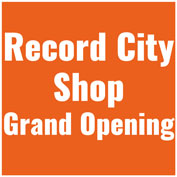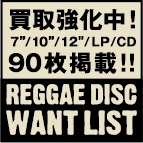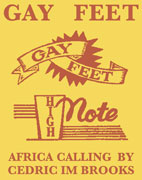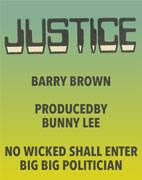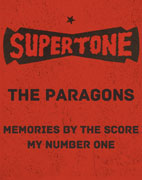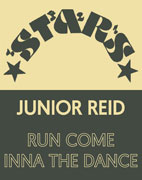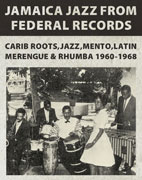Joe GibbsText by Harry Hawks
Nothing succeeds like success and there was a time in the mid to late seventies when very few record labels came near to succeeding like or exceeding the success of the releases on the Joe Gibbs label.
Joe Gibbs
| Founded | 1967 |
| Place of Establishment | Retirement Crescent Kingston Jamaica |
| Founder | Joel Gibson |
| Producer(s) | |
| Engineer(s) | Errol Thompson Lee Perry Winston 'Niney' Holness |
| Related Artist(s) | |
| Related Label(s) |
"He's like the producer... He's not a musician but he can relate to you what he wants that kind of way."
Clifton 'Jackie' Jackson
From the outset Joe Gibbs surrounded himself with talented people and employed the legendary Lynn Taitt & The Jets and vocalist extraordinaire Roy Shirley for his first ever Number One record 'Hold Them' a groundbreaking record built around the sound of a Salvation Army marching band. Through this association with Roy Shirley Joe got to know Bunny Striker Lee and later recalled that he "always loved Bunny's vibes". After parting company with Coxsone (CS Dodd) at Studio One Lee 'Scratch' Perry (Lee Perry) was working as an in-house producer and arranger for West Indies Records Limited and, after Striker had helped Joe promote 'Hold Them', he took over Lee Perry's role at WIRL and 'Scratch' became musical arranger for Joe Gibbs.
Scratch introduced Wilburn Stranger Cole & Gladstone 'Gladdy' Anderson(Gladstone Anderson) to Joe who released two of their superb self produced songs, 'Just Like A River (La La La)' and 'Seeing Is Knowing', on his Amalgamated label and both were big sellers. During this period Scratch worked closely with The Pioneers on records such as 'Long Shot' before the group hit internationally with its follow up, 'Long Shot Kick The/De Bucket', for Leslie Kong. Scratch's b-side to the The Pioneers' 'Jackpot' 1968 release on Amalgamated proved to be a harbinger for the direction that his music would take during the following decade: 'Kimble', a version to 'Seeing Is Knowing', featured Scratch acting out the part of the villain in the popular television show 'The Fugitive' accompanied by various sound effects including breaking bottles and cracking whips. Scratch then became 'The Upsetter' after one of the most popular records that he made with Joe Gibbs... a musical attack on his former employer Clement 'Coxsone' Dodd the record would give Scratch the name for his own label when he parted company with Joe Gibbs. According to Scratch he left Joe because he felt that he was receiving neither the proper financial credit nor his rightful recognition and Scratch's musical condemnation of Joe, 'People Funny Boy' released on his Upsetter label soon after leaving Amalgamated, was a massive hit in Jamaica and the UK. Joe Gibbs then versioned the tune as Sir Gibbs with 'People Grudgeful' where he, in turn, admonished Scratch...
Following Lee Perry's departure Winston Holness(Winston ‘Niney’ Holness), a young record salesman and freelance producer known as 'Niney' began to work for Joe on a freelance basis and Joe laughed when he recalled that "Niney liked working for me because I always paid cash". Joe's first record shop, the Parade Record Shack, was situated on the corner of South and West Parade and he opened the New York Record Mart at 11 South Parade in 1969 where Nicky Thomas worked for a while as a salesman. Joe always had an ear for talent and, the following year, he scored a Number Nine hit on the UK National Charts with Nicky's version of 'Love Of The Common People'. Nicky then relocated to London to capitalise on his international hit. The shop was a success from the beginning "it was in a great location and people would pile off the bus straight into the shop" and, when the lease expired, Joe moved premises to 20 North Parade "right next door to Randys".
Joe had built his first recording studio in 1968 in the Duhaney Park area "a simple but effective two track studio modelled on the studio at Federal Records" and, in 1971, he started work on a new studio complex at 24 Retirement Crescent in Kingston 5 which would take two years to complete. In late 1972 Joe Gibbs released one of the first full length dub albums, 'Dub Serial', in a very limited pressing but, at this early stage, dub was a strictly underground phenomenon heard only on sound systems. Joe now began to enjoy huge overground hits with a variety of artists including Dennis Brown with the first cut of 'Money In My Pocket' and Big Youth with the stupendous 'Chucky No Lucky', 'The Big Fight' and 'Foreman vs. Frazier'. Niney introduced Errol 'Errol T'/'ET' Thompson(Errol Thompson) to Joe when Errol was first working at Randys and they rapidly established a rapport. Errol would often work on Joe's sessions and, in 1975, this developed into a full time working relationship. Errol moved from Randys to work with Joe in his new sixteen track studio which "took reggae to another level through complex productions expertly mixed by ET". Joe recalled that "teamwork and fun" were the key elements in their productions together and the pair became known as 'The Mighty Two' and worked closely together right up until Errol's untimely death.
Their work together was at the forefront of grass roots reggae's big breakthrough and The Mighty Two captured the dread mood of the times on records such as Culture's 'Two Sevens Clash' and Prince Far I's 'Under Heavy Manners' and Volumes One, Two and Three of the 'African Dub' series. These three albums are rightly regarded as the records that finally broke dub music outside of the reggae market. ' African Dub' brought together many of the elements of Jamaica's mid-seventies dread and dub drenched music and made it into a readily accessible musical form. Many of The Mighty Two's updates of sixties rock steady records became better known than the originals such as The Gaylads' 'Joy In The Morning', which became Bobby Melody's 'Jah Bring I Joy', and The Heptones' 'I've Got A Feeling' which was transformed by Culture into 'I'm Not Ashamed'.
The story of 'Uptown Top Ranking' provides an illustration of how popular, and populist, their music could be... in 1977 Joe & Errol had decided that the time was right for updating the legendary Alton Ellis' Studio One classic 'I’m Still In Love'. Marcia Aitken sang the song for The Mighty Two as 'I'm Still In Love With You Boy' which proved very popular and Joe and Errol followed this with a version from Trinity entitled 'Three Piece Suit' in which the deejay detailed, down to his "diamond socks and ting", just what a smart dresser he was and how irresistible the girls found him. In a direct response to Trinity's macho bragging the Mighty Two then gave the ladies a voice with Aletha & Donna's 'Uptown Top Ranking' and the record was played regularly on UK national radio by reggae aficionado John Peel. The combination of Althea and Donna's playful innocence and the power of Joe Gibbs & The Professionals' rhythm proved irresistible and, when Radio One play listed the record, it shot to Number One in the UK National Charts in January 1978.
Joe had continued to work with Dennis Brown on faultless albums including 'Vision Of Dennis Brown' and further international success followed when Dennis' new version of 'Money In My Pocket' reached Number Fourteen in the UK National Charts in the spring of 1979. In the early eighties Joe established a record distribution outlet in Florida and worked with Barrington Levy and other rising stars of the dancehall style. In a more sentimental 'lovers' style the Mighty Two recorded a version of Charley Pride's country & western song 'Someone Loves You Honey' with JC Lodge with calamitous results. The record proved very popular with record buyers but landed Joe in copyright problems over "an improper song writing credit" which "resulted in the closure of his studio". The Mighty Two now concentrated on Joe's Kingston supermarket, which was managed by Errol, while Joe's son Carl Rocky Gibbs continued the family musical tradition by re-releasing many of the labels' biggest hits and producing his own hits too. In 1993 the Retirement Crescent studio was reopened and The Mighty Two began to record occasionally with Sydney Crooks of The Pioneers working on the arrangements. These recordings "proved popular in Brazil where Gibbs began spending increasing periods of time".
However, it is the incredibly impressive collection of recordings from the sixties and seventies that compose Joe Gibbs' lasting legacy... loud, dynamic and aggressive yet always backed by hook lines and memorable melodies. These contradictory elements helped to give his music its enduring qualities and the combination of The Mighty Two's musical and technical expertise enabled them to fashion the avant-garde music of Kingston into a package that crossed over to the rest of the world in the seventies.
Errol Thompson died after a series of strokes 13th November 2004
Joe Gibbs died of a heart attack 21st February 2008.
Date Added: Jan 17, 2014 / Date Updated: Jan 17, 2014
Copyright (C) 2024 Dub Store Sound Inc.





